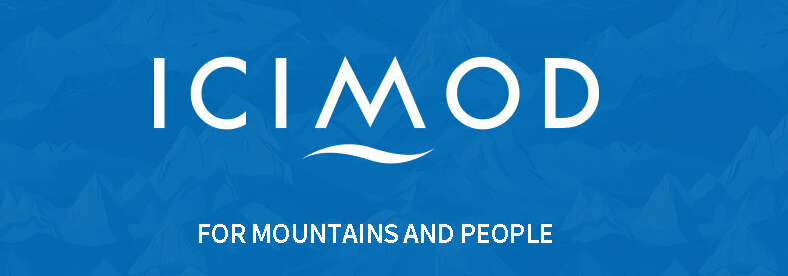Asian Development Bank (ADB) has Appointed ICIMOD to Act as one of Three Technical Implementing Partners

Kathmandu – The Asian Development Bank (ADB) has appointed ICIMOD to act as one of three technical implementing partners in a major initiative designed to transform climate and disaster risk reduction in the Hindu Kush Himalaya region.
ICIMOD collaborates with ADB, engineering firm BGC, and a Swiss consortium supported by the Swiss Agency for Development and Cooperation on $6.52M initiative to build resilience in mountains.
‘BARHKH’ initiative will harness regional and local best-practice alongside Swiss expertise in disaster risk reduction, as minimal damage from last week’s glacier landslide disaster in Alpine village Blatten proves impact of Alpine approaches.
Initiative aims to build permanent capacity and increase access to investment and training to save lives and protect infrastructure in vulnerable mountain rang.
Himalayas (BARHKH) initiative, launched in December 2023, with a total of $6.52 million funding for its first phase, $450,000 of which goes to ICIMOD, seeks to reduce the human and economic risks from the rising intensity and number of climate-induced mountain hazards in the region, including floods, landslides, and glacial lake outburst floods (GLOFs).
Switzerland, through the Regional Climate Action Partnership in the Hindu Kush Himalaya, has contributed CHF 2 million ($2.4M) to the BARHKH initiative. In addition, Switzerland is bringing in its decades-long expertise in climate change and disaster risk management through a range of Swiss institutions, including those from the private sector and academia. This collaboration aims to build on global knowledge and enhance regional capacity.
The initiative also seeks to cut the costs of disaster risk reduction for individual governments, promote climate resilient investments, and strengthen community resilience by developing shared data, systems on multi-hazard risks and multi hazard early warning systems, and with improved access to training, knowledge and finance.
The initiative sets out to build permanent regional capacity in interventions that address a spectrum of hazards, from floods, debris flows, landslides, glacial lake outburst floods to permafrost thawing.
Interventions will range from identifying disaster hotspots, reducing exposure, by using multi-hazard risk assessment to inform climate resilient investments, to ramping up early warning for early action, building impact-resistant infrastructure, insurance solutions, and increasing the effectiveness of operations, maintenance and finance plans.
In its first phase, which runs till October 2028, BARHKH focuses on Bhutan and Nepal. Phase two will focus on operationalisation, and scaling the initiative to additional countries, and sectors in the Hindu Kush Himalayan region.
”Our warming world is unleashing devastating hazards in our mountains. Even advanced economies are being stretche-we must act now to scale proven solutions across the HKH and we hugely applaud ADB for this initiative,” states Saswata Sanyal, Disaster Risk Reduction Lead at ICIMOD and Project Coordinator for BARHKH for ICIMOD.
”The escalating costs of disaster management and mitigation make it imperative for agencies and governments within and beyond our region to come together like never before – to ensure as many people and sectors as possible benefit from the best innovations and systems and techniques, at the lowest cost. We’re delighted to be among the technical advisers whose insights will advance disaster management and lower risk in this region.”
ICIMOD’s participation in this project was confirmed just days ahead of the opening of the Global Platform for Disaster Risk Reduction (GPDRR), the key fora for disaster risk experts to share knowledge, discuss development and trends. This year’s event, which closes tomorrow (6 June) is hosted by the Government of Switzerland.
”Mountain communities around the world, from the Alps to the Andes and the Himalayas, are threatened by increasing intensity and frequency of mountain-related hazards. Their lives, ways of life, culture, and heritage are all threatened,” the UN Office for Disaster Risk Reduction wrote in a statement in response to the glacier landslide which struck Switzerland last week.
”This tragedy could have been much worse if not for the quick actions of Swiss authorities, who provided early warning to the village’s residents and evacuated them, and their livestock, days ago. This is a testament to the power of disaster risk reduction in reducing loss of life and protecting livelihoods. Over the decades, the Swiss have developed significant expertise in managing mountain-related disaster risks and have been generously sharing it with countries across the world.
”With the hazard pattern changing so significantly with temperature rise, disaster management in the HKH is not yet where it needs to be,” said Declan Magee, Principal Economist and Team Leader BARHKH for ADB. “Huge knowledge exists in this region, and beyond it. This is a first crucial step towards pooling that knowledge base and technical expertise, building the appropriate capacity and leveraging the right investment and planning guidance to save lives, and safeguard economic development.
The press released has published in own authentic portal of ICIMODE. Nepal’ Offices.
